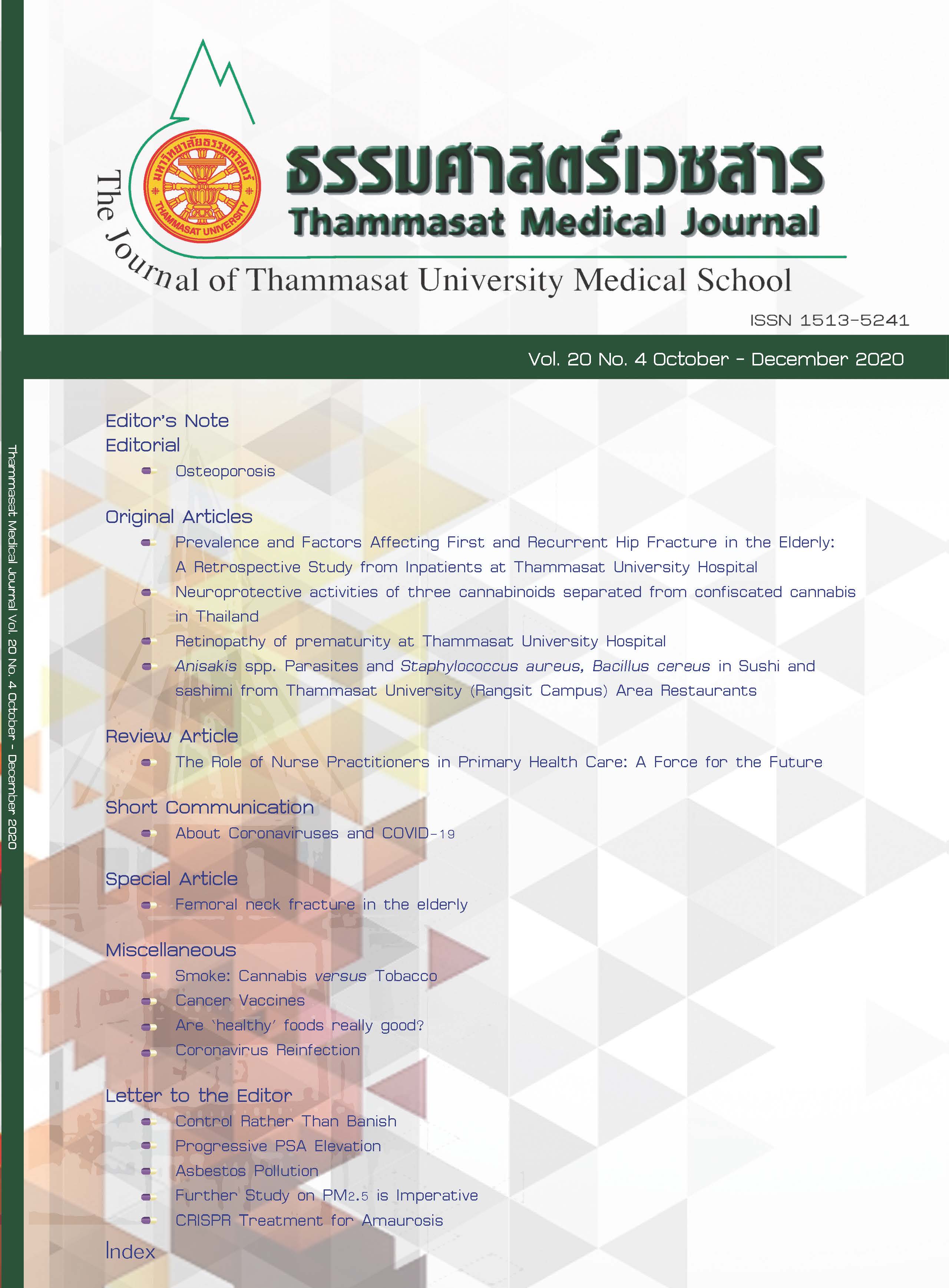Neuroprotective activities of three cannabinoids separated from confiscated cannabis in Thailand
Keywords:
Cannabis sativa, Cannabinoids, NeuroprotectiveAbstract
Introduction: The female flower of Cannabis sativa L. (Cannabinaceae) contains many cannabinoids that possesses the psychological effects. Therefore, the scientific studies were still in dispute
between usefulness and uselessness.
Method: The present study was designed to isolate the major cannabinoids compounds from confiscated cannabis and examine the neuroprotective activities using two models; serum deprivation method and co-administration of hydrogen peroxide assay.
Results: Three cannabinoids (CBD, CBN and THC) were isolated from the confiscated cannabis. CBD and CBN significantly protected the cultured neurons from the death caused by deprived
serum under H2O2 induced oxidative stress. Significant difference was observed between the percentage of neuron viability when treated with 10 ng/ml (31.8 nM) CBD or 100 ng/ml (322nM) CBN under oxidative stress conditions.
Conclusion: CBD was effective as a neuroprotective substance against neurodegenerative disorders such as Parkinson’s and Alzheimer’s diseases.


